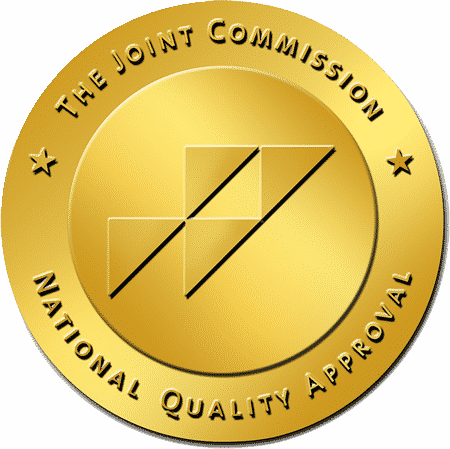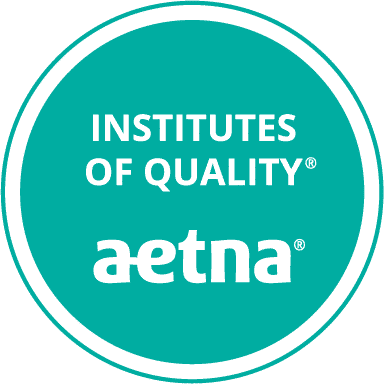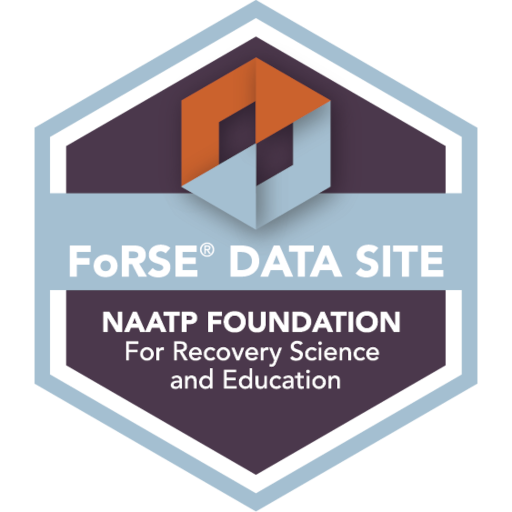Key Takeaways
- Tyler, Texas, residents often seek addiction and alcohol treatment away from local triggers to build a stronger foundation for recovery
- La Hacienda Treatment Center provides comprehensive care on a 40-acre ranch with 24/7 medical monitoring and specialized programs
- Treatment options include medical detox, residential programs, and extensive aftercare services with strong alumni support
- Insurance coverage available through most major providers, with La Hacienda serving as a preferred provider for Blue Cross, Cigna, United Healthcare, and Aetna
- Specialized programs serve unique populations, including airline pilots through the HIMS program and individuals with co-occurring mental health disorders
- Smith County faces significant substance abuse challenges, driving demand for quality treatment options
Taking the first step toward recovery requires immense courage, especially when struggling with substance abuse in Tyler, Texas. For many residents facing addiction, the path to sobriety leads beyond the city limits to specialized treatment centers that offer distance from local triggers and comprehensive care. La Hacienda Treatment Center has become a trusted alcohol rehab for people living in Tyler seeking professional addiction treatment in a healing space designed for lasting recovery.

Located in the heart of East Texas, Tyler, like most communities, has men and women who struggle with alcoholism and substance use disorder affecting many across Smith County. Many individuals and their loved ones discover that seeking help away from the familiarity of the city provides the best opportunity to break free from the cycle of drug abuse and alcohol abuse and build the tools necessary to stay sober.
Drug Rehab Centers in Tyler, Texas
Understanding Accredited Facilities
An accredited drug and alcohol treatment facility meets rigorous standards established by national organizations like the Joint Commission or CARF (Commission on Accreditation of Rehabilitation Facilities). These accreditations ensure that drug rehabs maintain the highest levels of safety, clinical care, and evidence-based protocols. When seeking drug and alcohol treatment, the person should verify that their chosen facility holds current accreditation and employs licensed medical professionals, therapists, counselors, and support staff.
Accredited drug and alcohol rehab centers provide comprehensive services including medical detoxification, residential treatment programs, intensive outpatient care, and specialized programs for specific populations. These facilities must demonstrate adherence to strict protocols for client safety, staff qualifications, effectiveness, and ongoing quality improvement.
Understanding Services and Options
Quality drug and alcohol treatment encompasses multiple levels of care designed to meet individuals where they are in their recovery journey. Medical detox provides 24/7 supervision during the critical withdrawal phase, ensuring patient safety and comfort as the body eliminates drugs or alcohol. Residential treatment offers intensive therapeutic intervention in a structured environment, typically lasting 30-90 days depending on individual needs.
Outpatient programs allow clients to maintain work and responsibilities while receiving regular therapy and medical monitoring. Medication-assisted treatment incorporates FDA-approved medications for opioid or alcohol addiction, combined with counseling and behavioral therapies. Specialized programs address unique needs such as co-occurring mental health disorders, trauma, or specific professional requirements.
La Hacienda Treatment Center: A Premier Option for Tyler Residents
For those who live in Tyler, TX, seeking comprehensive drug and alcohol treatment, La Hacienda Treatment Center represents a premier choice that combines clinical excellence with a compassionate approach to recovery. Many choose La Hacienda specifically because it allows them to step away from local triggers while receiving care that addresses the complex nature of substance use disorder.
La Hacienda Treatment Center – Comprehensive Drug and Alcohol Rehab
La Hacienda Treatment Center sits on a sprawling 40-acre ranch, providing a serene and private environment where clients can focus entirely on their recovery journey. The facility’s setting removes clients from the stressors and triggers of daily life, creating space for healing and personal growth. This peaceful atmosphere, combined with round-the-clock medical monitoring, ensures that each client receives the attention and care needed during this critical time.
The center’s services span the full continuum of care, beginning with medically supervised detoxification that prioritizes client safety and comfort. During detox, medical staff monitor clients continuously, administering medications as needed to manage withdrawal symptoms and prevent complications. This medical oversight is particularly crucial for individuals withdrawing from alcohol, benzodiazepines, or opioids, where withdrawal can pose serious health risks. Even those with daily amphetamine and marijuana use appreciate the detox process at La Hacienda in Texas, as it allows everyone to look at their history of alcoholism, depression, and drug abuse with doctors and nurses who understand how difficult it is to become drug-free.
Following detox, clients transition into residential inpatient care where they engage in daily individual and group therapy sessions. The program integrates evidence-based therapy with holistic approaches, addressing not just the drug abuse itself but the underlying factors that contribute to all substance abuse. Relapse prevention strategies form a core component of life free from drugs, equipping clients with practical tools and coping mechanisms they’ll need to maintain sobriety after discharge.
The integration of 12-step meeting principles helps clients connect with the broader recovery community while developing a spiritual foundation for their sobriety. The medical and clinical team remains available 24/7, providing immediate support when clients face struggles or need additional guidance during their residential stay.
La Hacienda’s commitment to aftercare services ensures that the therapeutic relationship doesn’t end at discharge. The center’s robust alumni program creates ongoing connections that support long-term recovery, providing graduates with a network of peers who understand their journey and can offer encouragement during difficult times.
Specialized Programs
Family Programs: Healing Relationships
Alcohol and drug abuse affect entire families, not just the individual struggling with substances. La Hacienda recognizes this reality through comprehensive family programs that educate loved ones about addiction as a disease while teaching healthy communication patterns and boundary-setting skills. Family members learn to identify enabling behaviors that may inadvertently support continued substance abuse, replacing them with supportive actions that encourage recovery.
These family programs typically include educational workshops, family therapy sessions, and structured family weekends where relatives can participate in the treatment process. The goal extends beyond supporting the patient to helping families heal from the trauma and dysfunction that often accompanies addiction. Many family members discover they need their support and healing, leading to stronger family relationships and better outcomes for everyone involved.
HIMS Program: Specialized Care for Aviation Professionals
La Hacienda operates one of the few approved facilities by Human Intervention Motivation Study (HIMS) in the country, specifically designed for airline pilots and other aviation professionals facing substance abuse. This highly specialized program addresses the unique regulatory requirements that pilots must meet to return to flying, including Federal Aviation Administration (FAA) compliance and ongoing monitoring protocols.
The HIMS program integrates key medical assessments, psychological evaluation, and occupational support to help aviation professionals achieve and maintain the sobriety required for flight duties. Participants work with specialists who understand both addiction medicine and aviation regulations, ensuring that the alcohol addiction treatment meets both recovery needs and professional requirements. This program represents La Hacienda’s commitment to serving specialized populations with unique recovery needs.
Co-occurring Mental Health and Substance Use Disorder
Many individuals seeking addiction treatment also struggle with mental health conditions such as depression, anxiety, post-traumatic stress disorder, or bipolar disorder. La Hacienda’s integrated approach treats both conditions simultaneously, recognizing that untreated mental health issues often contribute to relapse and that substances may have been used to self-medicate psychological symptoms.
The dual diagnosis program employs psychiatrists, licensed therapists, and counselors who collaborate to develop plans that address each person’s unique needs. Clients receive appropriate psychiatric medications while learning healthy coping strategies for managing mental health symptoms without relying on drugs or alcohol. This integrated approach significantly improves long-term recovery outcomes for individuals with co-occurring disorders.
What Services are Offered at an Alcohol Rehab or Drug Rehab?
Most facilities in Texas and throughout the United States refer to alcohol rehab and drug rehab as substance use disorder. The severity of the alcohol or drug use will vary by client, and based on each person’s history, they can enter a program that best suits their needs. Let’s go over the types of services offered.
Medical Detox with 24/7 Supervision
Medical detoxification represents the critical first phase of addiction treatment, requiring constant medical supervision to ensure client safety during withdrawal. La Hacienda’s detox program employs board-certified physicians and registered nurses who monitor patients around the clock, administering medications to minimize discomfort and prevent dangerous complications.
The detox process varies depending on the substances involved, with alcohol and benzodiazepine withdrawal potentially causing life-threatening seizures if not properly managed. Opioid withdrawal, while typically not life-threatening, can be extremely uncomfortable and may require medication-assisted treatment to stop the withdrawal discomfort and cravings. The medical team creates individualized detox protocols based on each patient’s substance use history, medical conditions, and withdrawal risk factors.
Residential Treatment: Intensive Therapeutic Environment
Following successful detox, clients enter residential treatment where they live on campus while participating in intensive daily programming. This structured environment removes clients from external stressors and triggers while providing constant access to therapeutic support. Days typically include individual therapy sessions, group counseling, educational workshops, and recreational activities designed to promote physical and emotional healing.
Residential treatment allows for deep exploration of the underlying issues contributing to addiction, including trauma, family dysfunction, mental health conditions, and learned coping patterns. Clients develop new life skills, practice healthy communication techniques, and build relationships with peers who share similar struggles and goals. The intensive nature of residential care creates rapid progress that might take months or years to achieve in outpatient settings.

Intensive Outpatient Programs for Flexible Recovery Support
For clients transitioning from residential care or those whose circumstances allow them to live at home while participating in the drug rehab modalities, intensive outpatient programs provide structured support with greater flexibility. These programs typically involve multiple therapy sessions per week, allowing clients to maintain work or responsibilities while continuing their recovery work.
Outpatient care includes individual counseling, group therapy, family sessions, and psychiatric services as needed. Clients benefit from applying recovery skills in real-world situations while maintaining connection to their compassionate team. This level of care often serves as a bridge between residential treatment and independent living, providing ongoing support during the vulnerable early months of recovery.
Medication Assisted Treatment (MAT) for Opioid and Alcohol Disorders
For individuals struggling with opioid use disorder or alcohol use disorder, medication-assisted treatment provides additional support for maintaining sobriety. FDA-approved medications such as buprenorphine or naltrexone can significantly reduce cravings and withdrawal symptoms, making it easier for clients to engage in therapy and build recovery skills.
These medications work by blocking the euphoric effects of opioids or alcohol, reducing the rewarding aspects of substance use. When combined with comprehensive counseling and behavioral therapy, medication-assisted treatment has been shown to improve treatment retention success rates and reduce the risk of overdose. La Hacienda’s medical team carefully evaluates each client to determine if medication-assisted treatment would be beneficial for their specific situation.
Sober Living: Transitional Housing Support
As clients prepare to return to independent living, sober living arrangements provide a structured, substance-free environment that bridges the gap between intensive treatment and full independence. These residences maintain house rules that support sobriety while allowing residents to resume work, education, or other responsibilities gradually.
Sober living homes typically require participation in recovery meetings, regular drug testing, and adherence to curfews and house guidelines. Housemates support each other in maintaining sobriety while practicing the life skills learned during participation in rehab. This transitional phase helps prevent the shock of returning to previous environments where triggers can be developed, reducing relapse risk during the vulnerable early recovery period.
Insurance and Payment Options
Major Insurance Acceptance and Preferred Provider Status
La Hacienda Treatment Center maintains preferred provider relationships with most major insurance networks, significantly reducing financial barriers for patients seeking treatment. As a provider for Blue Cross, Cigna, United Healthcare, and Aetna, clients typically face lower out-of-pocket costs and streamlined approval processes for medically necessary addiction treatment services.
Insurance coverage for addiction treatment has expanded significantly following the Mental Health Parity and Addiction Equity Act, which requires insurance plans to provide coverage for substance abuse comparable to medical and surgical benefits. Most private insurance plans now cover detoxification, residential treatment, outpatient care, and medication-assisted treatment, though coverage levels and approval requirements vary by plan.
Clients should verify their specific benefits before admission, including deductibles, co-payments, and any pre-authorization requirements. La Hacienda’s admissions team assists potential clients in understanding their insurance benefits and obtaining necessary approvals to minimize delays.
Payment Options for Those Without Insurance
Texas Medicaid Coverage
Texas Medicaid provides coverage for medically necessary substance abuse and alcohol addiction treatment for eligible low-income residents and their families. Coverage includes inpatient detoxification, residential treatment, outpatient counseling, and medication-assisted treatment services. However, Medicaid recipients may face longer waiting lists and more limited provider options compared to those with private insurance.
Eligibility for Texas Medicaid depends on income levels, family size, and other factors that can change over time. Pregnant women, families with children, and individuals with disabilities may qualify for coverage even with slightly higher incomes. The application process can take several weeks, so families should begin this process as soon as possible when considering treatment options.
Texas Medicaid approves programs that can accept those benefits. La Hacienda is not a Texas Medicaid provider.
Medicare Benefits for Seniors and Disabled Individuals
Medicare provides coverage for addiction treatment services for seniors aged 65 and older, as well as younger individuals with qualifying disabilities. Medicare Part A covers inpatient hospital services, including medically necessary detoxification, while Medicare Part B covers outpatient mental health and substance abuse services.
Medicare Advantage plans may offer additional benefits not covered by traditional Medicare, including expanded substance abuse services or lower cost-sharing requirements. Beneficiaries should review their specific plan documents to understand coverage limits, approved providers, and any prior authorization requirements for addiction treatment services.
All Medicare Plans have strict criteria. La Hacienda is not contracted with Medicare.
TexCare Children’s Health Insurance Program
The Texas Children’s Health Insurance Program (CHIP) provides health coverage for children and pregnant women in families with incomes too high to qualify for Medicaid but too low to afford private insurance. CHIP covers substance abuse treatment services for eligible youth, recognizing the importance of early intervention in preventing lifelong addiction struggles.
Families can apply for CHIP coverage online or through local offices, with coverage typically beginning the month following approval. The program covers a wide range of services, including assessment, counseling, family therapy, and residential treatment when medically necessary. La Hacienda only treats adults and is not contracted with the Texas Children’s Health Insurance Program (CHIP).
Additional Financial Assistance Options
For individuals who don’t qualify for government programs and cannot afford private pay rates, some facilities offer sliding-scale payment plans based on documented financial need. Community foundations, charitable organizations, and faith-based groups sometimes provide grants or scholarships for addiction treatment, particularly for residents demonstrating financial hardship.
Families should explore all available options and communicate openly with treatment centers about their financial situation. Many facilities prefer to work with motivated patients to find payment solutions rather than turn away individuals who need treatment but face financial barriers.
Addiction Treatment Landscape in East Texas
Smith County Substance Abuse Statistics and Trends
Tyler, Texas, known as the “Rose Capital of America” and home to the annual Texas Rose Festival, faces issues with substance abuse that mirror trends across East Texas. Smith County has experienced rising rates of drug-related deaths, emergency department visits, and arrests, particularly involving alcohol, methamphetamine, and prescription opioids.
Local emergency departments report increasing numbers of overdose cases, while law enforcement data shows persistent problems with drug-related arrests and impaired driving incidents. The combination of rural isolation, economic stress, and limited access to mental health services contributes to substance abuse problems that affect residents across all demographic groups.
Public health officials note that alcohol remains the most commonly abused substance in the region, often in combination with other drugs. Methamphetamine use has increased significantly over the past decade, while prescription opioid abuse continues to affect both urban and rural residents. These trends create ongoing demand for comprehensive addiction treatment services that address the complex needs of East Texas residents.
Getting Help for Someone in Tyler, Texas
The geographic and cultural characteristics of Tyler, Texas, and surrounding Smith County can create specific issues for individuals seeking addiction treatment. Rural stigma around mental health and alcohol and drug abuse can prevent people from seeking help locally, leading many to prefer seeking help in distant locations where they feel greater privacy and anonymity.
Limited public transportation options can make accessing local outpatient services difficult for individuals without reliable transportation. Economic factors, including lower average incomes and higher rates of uninsured compared to urban areas, create additional barriers to drug and alcohol program access.
Many in Tyler, Texas, work in industries where addiction treatment could impact employment, creating reluctance to seek local care where employers, coworkers, or community members might learn about their needs. This dynamic often makes residential treatment at facilities like La Hacienda more appealing than local outpatient options.
Support Services and Aftercare
La Hacienda Alumni Programs and Community Connections
La Hacienda’s alumni program represents one of the center’s greatest strengths, creating lasting connections that support graduates throughout their recovery journey. Alumni events, both virtual and in-person, provide opportunities for graduates to reconnect with peers, share experiences, and receive ongoing encouragement from others who understand maintaining sobriety.
The alumni network extends across Texas and beyond, allowing those who live in Tyler, Texas, to connect with recovery support regardless of where they live. Regular communication through newsletters, social media groups, and phone check-ins helps maintain therapeutic relationships that were formed during residential treatment.
Alumni often serve as mentors for current clients, sharing their experiences and demonstrating that long-term recovery is possible. This peer support component has been shown to improve success and outcomes and reduce relapse rates, making the alumni program a considerable element of La Hacienda’s comprehensive approach to addiction treatment.

Support Services and Educational Programs
Recovery affects entire family systems, and La Hacienda recognizes that family healing is essential for long-term success. Family support services include educational programs that help loved ones understand alcohol addiction treatment and substance use disorder as a medical condition rather than a moral failing, reducing shame and blame that can hinder recovery progress.
Family members learn about enabling behaviors, healthy boundary setting, and communication techniques that support recovery without taking responsibility for their loved one’s choices. Support groups for friends and families provide opportunities to connect with others facing similar circumstances, reducing isolation and building networks of mutual support.
Educational programs address topics such as relapse warning signs, crisis intervention techniques, and self-care strategies for family members who may have neglected their own needs while focusing on their loved one’s problems. These services continue after the patient’s discharge, recognizing that family recovery is an ongoing process.
Relapse Prevention Strategies and Long-term Recovery Planning
Successful addiction treatment extends far beyond the residential stay, requiring comprehensive relapse prevention planning that addresses life in the real world. La Hacienda works with each client to identify personal triggers, high-risk situations, and warning signs that could indicate increased relapse risk.
Relapse prevention plans include specific strategies for managing stress, dealing with cravings, and responding to unexpected challenges that might threaten sobriety. Clients learn to recognize early warning signs such as changes in sleep patterns, increased irritability, or social isolation that often precede actual substance use.
Long-term recovery planning involves connecting clients with local resources in their home communities, including therapists, physicians, support groups, and sober activities. This comprehensive approach recognizes that recovery is a lifelong process requiring ongoing support and skill development.
Choosing the Right Alcohol and Drug Rehab Center
Assessment of Individual Needs
Selecting appropriate addiction treatment begins with an honest assessment of individual needs, including the severity of substance use, the presence of mental health conditions, medical complications, and psychosocial factors that may impact recovery. Some individuals require immediate medical intervention for life-threatening withdrawal symptoms, while others may be stable enough for outpatient care.
Co-occurring mental health disorders such as depression, anxiety, or trauma-related conditions require integrated services that address both substance abuse and psychiatric symptoms simultaneously. Medical conditions such as diabetes, heart disease, or liver damage may influence treatment recommendations and require specialized medical monitoring during detox and residential care.
Family dynamics, employment considerations, legal issues, and housing stability all influence treatment planning and may favor residential care that removes individuals from chaotic or unsupportive environments. Honest assessment helps match clients with appropriate levels of care and treatment approaches most likely to result in successful outcomes.
Evaluation of Facility Accreditations and Standards
Quality addiction treatment facilities maintain current accreditation from recognized organizations such as the Joint Commission, demonstrating adherence to rigorous standards for patient safety, clinical care, and operational excellence. Families should verify accreditation status and ask about staff credentials, treatment protocols, and outcome measures used to evaluate program effectiveness.
Licensed facilities must meet Texas state regulatory requirements for staffing, safety, and clinical services, with regular inspections ensuring ongoing compliance. Board-certified physicians, licensed nurses and therapists, and certified counselors should provide clinical services, with appropriate supervision and continuing education requirements.
Families should feel comfortable asking facilities about their success rates, client satisfaction scores, and long-term outcome data. While complete transparency may not always be possible due to privacy concerns, reputable facilities should be willing to discuss their approach to measuring and improving treatment effectiveness.
Consideration of Treatment Approaches and Philosophy
Different treatment centers emphasize various therapeutic approaches, from strictly medical models to holistic programs incorporating alternative therapies. Evidence-based treatments such as cognitive-behavioral therapy, motivational interviewing, and medication-assisted treatment have strong research support and should form the foundation of any quality program.
Some individuals prefer faith-based programs that incorporate spiritual elements into recovery, while others may be more comfortable with secular approaches. Family involvement, peer support, and aftercare planning vary significantly between programs, and these factors may influence treatment success for specific individuals.
The therapeutic environment and program structure should match individual preferences and needs. Some patients thrive in highly structured, military-style programs, while others respond better to therapeutic communities emphasizing peer support and mutual aid. Understanding these differences helps families select programs most likely to engage and motivate their loved ones.
Financial Planning and Insurance Verification
Treatment costs can vary dramatically between facilities and levels of care, making financial planning essential before beginning treatment. Insurance verification should include understanding deductibles, co-payments, out-of-network penalties, and any lifetime limits on behavioral health benefits.
For individuals paying privately, facilities should provide clear, written estimates of all costs, including ancillary services, medications, and any additional fees not covered in basic program rates. Payment plans, sliding-scale options, and available financial assistance should be discussed transparently to avoid unexpected expenses during treatment.
Families should also consider indirect costs such as lost wages, travel expenses, and ongoing aftercare costs when budgeting for treatment. While cost is an important consideration, the cheapest option may not provide the comprehensive care needed for successful recovery, making value and treatment quality equally important factors.
Frequently Asked Questions
Why would someone from Tyler, Texas, go to La Hacienda?
People who live in Tyler, Texas, often choose La Hacienda Treatment Center because the distance from local triggers and familiar environments can strengthen early recovery. The comprehensive 40-acre ranch setting provides privacy and tranquility that allows complete focus on healing without the distractions and stressors of daily life. Many patients find that leaving Tyler temporarily helps them break free from people, places, and situations associated with their substance abuse.
La Hacienda’s specialized programs, including the unique professional program for aviation professionals and integrated treatment for co-occurring mental health disorders, serve populations that may not find appropriate care locally. The facility’s reputation for clinical excellence, family and friends involvement, and strong aftercare support attracts patients willing to travel for higher quality treatment than may be available in their immediate area.
What types of addiction treatment are available in Tyler, Texas?
In Tyler, Texas, residents have access to various levels of addiction treatment, including medical detoxification, residential inpatient programs, intensive outpatient services, and medication-assisted treatment. Local options may include hospital-based detox programs, community mental health centers offering outpatient counseling, and support groups through organizations like Alcoholics Anonymous and Narcotics Anonymous.
However, comprehensive residential treatment with specialized programming may require traveling to facilities like La Hacienda that offer more intensive services and longer-term care options. The combination of limited local residential options and the benefit of geographic distance from triggers leads many from Tyler to seek treatment at specialized facilities outside the immediate area.
How much does drug rehab cost, and what insurance is accepted?
Drug rehab costs vary significantly depending on the level of care, program length, and facility amenities. Residential treatment at quality facilities typically ranges from $15,000 to $50,000 per month, though costs can be substantially lower with insurance coverage. La Hacienda serves as a preferred provider for major insurance networks, including Blue Cross, Cigna, United Healthcare, and Aetna, significantly reducing out-of-pocket expenses for covered patients.
Most private insurance plans now cover addiction treatment as an essential health benefit, though coverage levels, deductibles, and prior authorization requirements vary by plan. Texas Medicaid provides coverage for eligible low-income residents, while Medicare covers treatment for seniors and disabled individuals. Patients should verify their specific benefits and obtain pre-authorization when required to avoid unexpected costs.
What is the difference between inpatient and outpatient treatment in Tyler?
Inpatient or residential treatment provides 24-hour care in a controlled environment, making it appropriate for individuals with severe alcohol and drug use, medical complications, or unstable living situations. Patients live at the facility during treatment, participating in intensive daily programming that may include individual therapy, group counseling, medical monitoring, and structured activities designed to build recovery skills.
Outpatient treatment allows patients to live at home while attending scheduled therapy sessions, medical appointments, and support groups. This level of care works well for individuals with stable living situations, strong family support, and less severe addiction issues. Many patients begin with residential care and transition to outpatient services as they develop stronger recovery skills and supports.
Are there specialized programs for veterans?
While La Hacienda is not a Veterans Administration facility, the center’s comprehensive approach includes trauma-informed care that addresses the unique needs of military veterans and their families. Many veterans struggle with substance abuse related to combat trauma, military sexual trauma, or the challenges of transitioning to civilian life.
The facility’s staff includes professionals trained in treating post-traumatic stress disorder and other military-related mental health conditions that often co-occur with substance abuse. Veterans may also benefit from connecting with other military families during treatment and through the alumni program, creating peer support networks that understand the unique challenges of military service.
How long do addiction treatment programs typically last?
Treatment program duration varies based on individual needs, with medical detoxification typically lasting 7-14 days, depending on the substances involved and withdrawal complexity. Residential treatment programs most commonly run 28-45 days, though some patients benefit from longer stays of 60-90 days or more when dealing with severe addiction or multiple failed treatment attempts.
Outpatient programs may continue for several months to over a year, with session frequency decreasing as patients develop stronger recovery skills and supports. Aftercare and alumni engagement can extend for years, recognizing that recovery is a lifelong process requiring ongoing support and skill development.
What should I expect during detox at La Hacienda Treatment Center?
Medical detoxification at La Hacienda begins with a comprehensive assessment to determine withdrawal risks and develop individualized treatment protocols. Patients receive 24-hour medical monitoring by physicians and nurses who administer medications as needed to manage withdrawal symptoms safely and comfortably.
The detox environment prioritizes patient dignity and privacy while ensuring constant access to medical intervention if complications arise. Patients can expect regular vital sign monitoring, medication administration, nutritional support, and emotional encouragement during this challenging phase. Family members receive updates on progress and education about what to expect during the detox process.
Are there faith-based addiction treatment options at La Hacienda?
La Hacienda incorporates voluntary spiritual programming that respects diverse religious backgrounds while recognizing the important role spirituality plays in many people’s recovery. Patients can participate in non-denominational spiritual support groups, chaplain services, and meditation practices without being required to adopt specific religious beliefs.
The 12-step program integration includes spiritual principles that can be interpreted through various faith traditions or secular spiritual practices. This inclusive approach allows patients to explore spirituality as a recovery resource while respecting individual beliefs and comfort levels with faith-based programming.
How do I know if a rehab center is accredited and legitimate?
Legitimate addiction treatment facilities maintain current accreditation from recognized organizations such as the Joint Commission or CARF, with certificates and accreditation badges typically displayed prominently on facility websites and physical locations. Families can verify accreditation status directly with these organizations through their online databases.
Licensed facilities must also meet Texas state regulatory requirements, with licenses available for verification through state health department websites. Reputable centers employ licensed medical professionals, certified counselors, and qualified support staff with appropriate credentials and ongoing training requirements. Families should feel comfortable asking about staff qualifications, treatment protocols, and outcome measures used to evaluate program effectiveness.
Conclusion
Recovery from alcohol and drug addiction requires courage, commitment, and comprehensive support that addresses the complex nature of substance use disorder. For those who live in Tyler, Texas, and are ready to take this life-changing step, La Hacienda Treatment Center offers the clinical excellence, compassionate care, and proven outcomes that create the foundation for lasting sobriety. The journey may begin with a single phone call, but it leads to a lifetime of possibilities free from the grip of addiction. Call our admissions office for help today.
Sources:
Texas Health Data: Drugs and Alcohol
Cigna Center of Excellence Bestowed to La Hacienda Treatment Center for Treating Substance Use
Yahoo! News: La Hacienda Treatment Center Receives Behavioral Health Care Accreditation
CBS19: State data shows number of fatal fentanyl-related poisonings in East Texas from 2020-22




